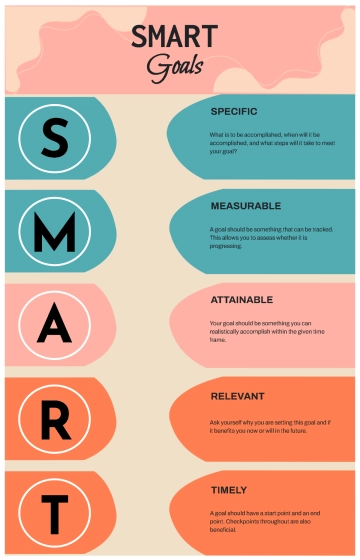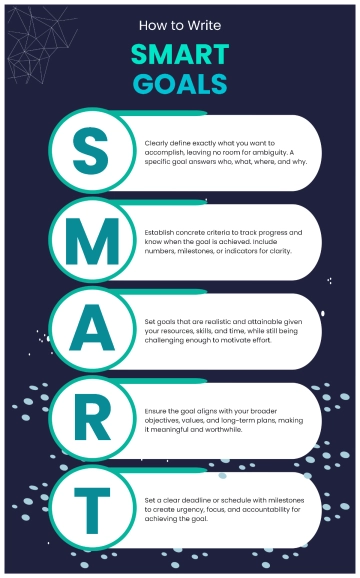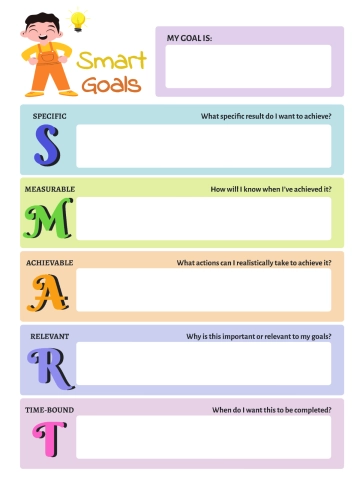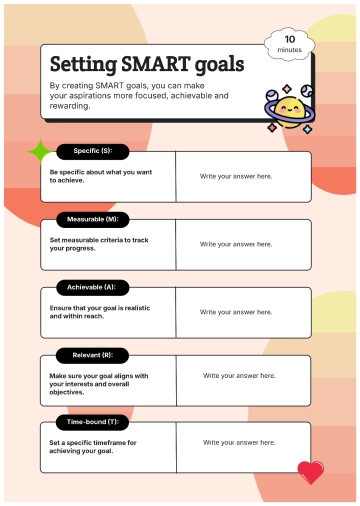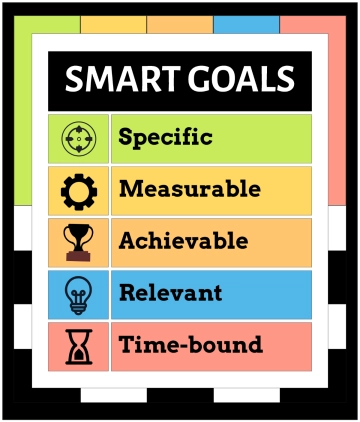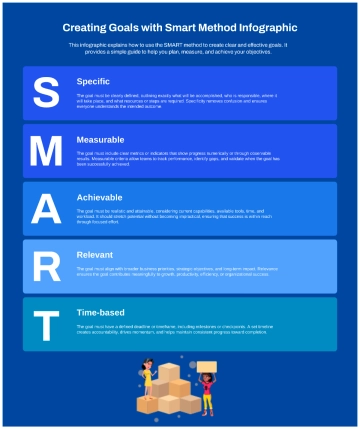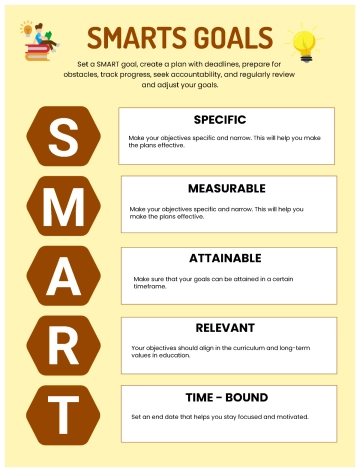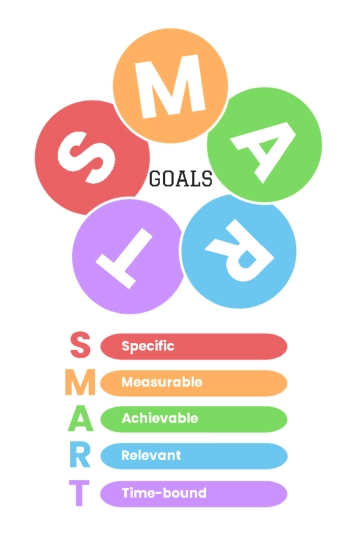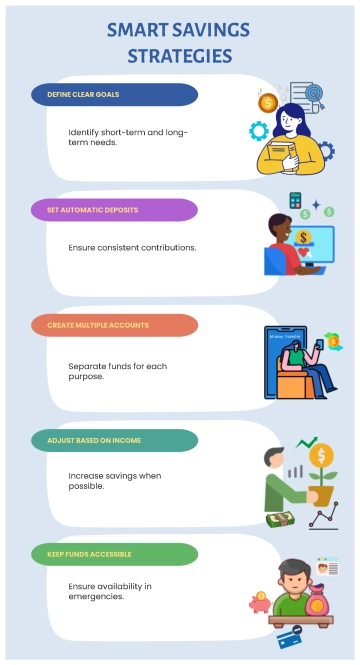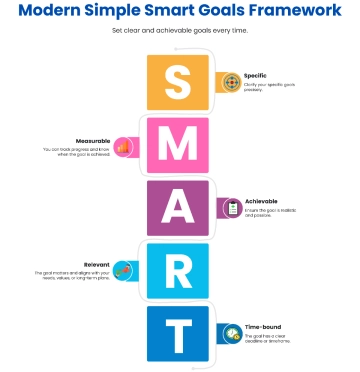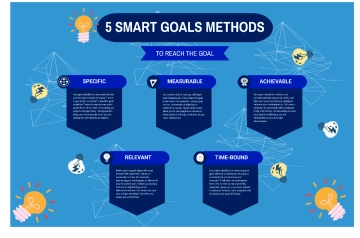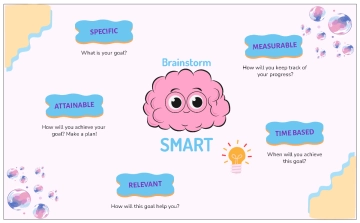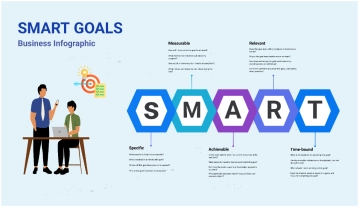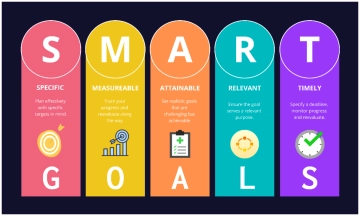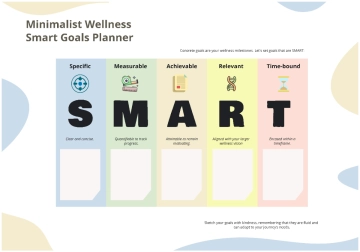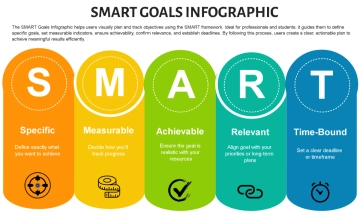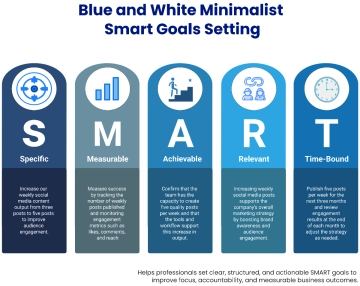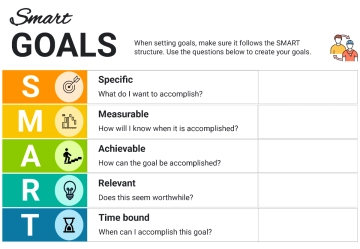Free Strategic SMART Goals
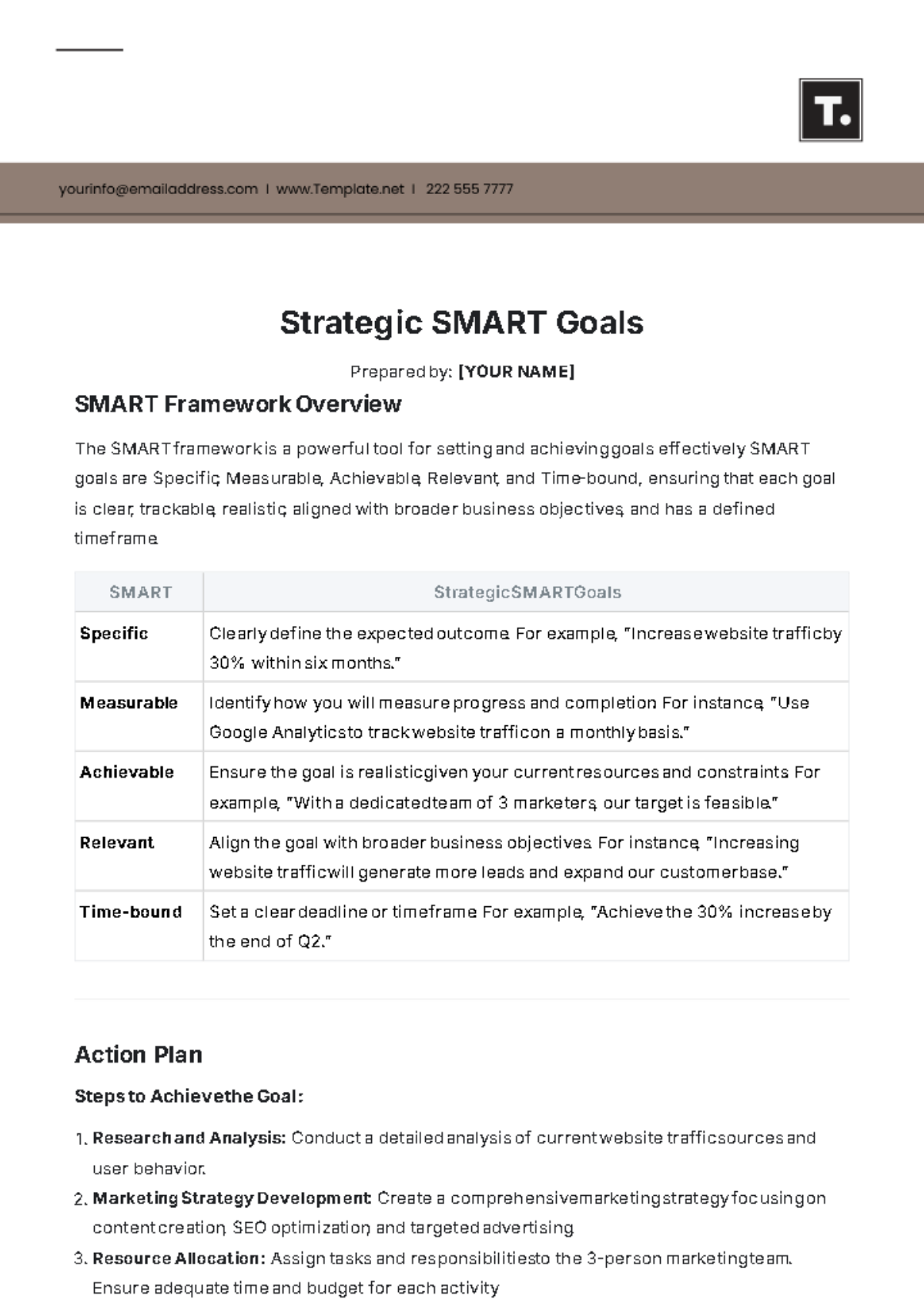
Prepared by: [YOUR NAME]
SMART Framework Overview
The SMART framework is a powerful tool for setting and achieving goals effectively. SMART goals are Specific, Measurable, Achievable, Relevant, and Time-bound, ensuring that each goal is clear, trackable, realistic, aligned with broader business objectives, and has a defined timeframe.
SMART | Strategic SMART Goals |
|---|---|
Specific | Clearly define the expected outcome. For example, "Increase website traffic by 30% within six months." |
Measurable | Identify how you will measure progress and completion. For instance, "Use Google Analytics to track website traffic on a monthly basis." |
Achievable | Ensure the goal is realistic given your current resources and constraints. For example, "With a dedicated team of 3 marketers, our target is feasible." |
Relevant | Align the goal with broader business objectives. For instance, "Increasing website traffic will generate more leads and expand our customer base." |
Time-bound | Set a clear deadline or timeframe. For example, "Achieve the 30% increase by the end of Q2." |
Action Plan
Steps to Achieve the Goal:
Research and Analysis: Conduct a detailed analysis of current website traffic sources and user behavior.
Marketing Strategy Development: Create a comprehensive marketing strategy focusing on content creation, SEO optimization, and targeted advertising.
Resource Allocation: Assign tasks and responsibilities to the 3-person marketing team. Ensure adequate time and budget for each activity.
Implementation: Execute the marketing plan, including launching campaigns, posting content, and optimizing the website.
Monitoring and Adjustment: Regularly review progress using Google Analytics. Make necessary adjustments to the strategy to ensure targets are met.
Final Evaluation: Assess the overall success of the campaign at the end of Q2. Prepare a report summarizing achievements and lessons learned.
Accountability
Responsible Parties:
[Your Name], Marketing Manager: Oversee the entire project, ensuring that all team members are on track and resources are appropriately utilized.
Team Member 1: Focus on SEO and content creation.
Team Member 2: Manage social media marketing and targeted advertising.
Team Member 3: Handle analytics, reporting, and website optimization.
Performance Reviews:
Weekly check-ins to track progress and address any challenges.
Monthly performance reviews to assess the success of individual tactics and make necessary adjustments.
Success Criteria:
Achieving a 30% increase in website traffic by the end of Q2.
Improved lead generation and conversion rates as a result of increased traffic.
Positive feedback from the team on the effectiveness of the strategy.
Notes
Additional Considerations:
Budget Constraints: Ensure that all marketing activities stay within the allocated budget. Seek additional funding if necessary, with justification.
Potential Risks: Identify potential challenges, such as changes in market conditions or resource availability, and plan for contingencies.
Ongoing Support: Post-Q2, consider continuing successful strategies or scaling up efforts to maintain and further increase traffic.
Documentation: Keep detailed records of all activities, decisions, and outcomes to inform future projects and strategies.
Next Steps:
Schedule an initial meeting with the marketing team to kick off the project.
Finalize the marketing strategy and begin resource allocation.
Set up a monitoring system for tracking progress on a weekly basis.
- 100% Customizable, free editor
- Access 1 Million+ Templates, photo’s & graphics
- Download or share as a template
- Click and replace photos, graphics, text, backgrounds
- Resize, crop, AI write & more
- Access advanced editor
Optimize your strategic planning with the Strategic SMART Goals Template. Ideal for aligning your goals with broader strategies, this template provides a clear framework for setting and achieving objectives. Fully customizable and editable in our Ai Editor Tool, it’s available on Template.net to help you execute your strategies effectively and measure success.
